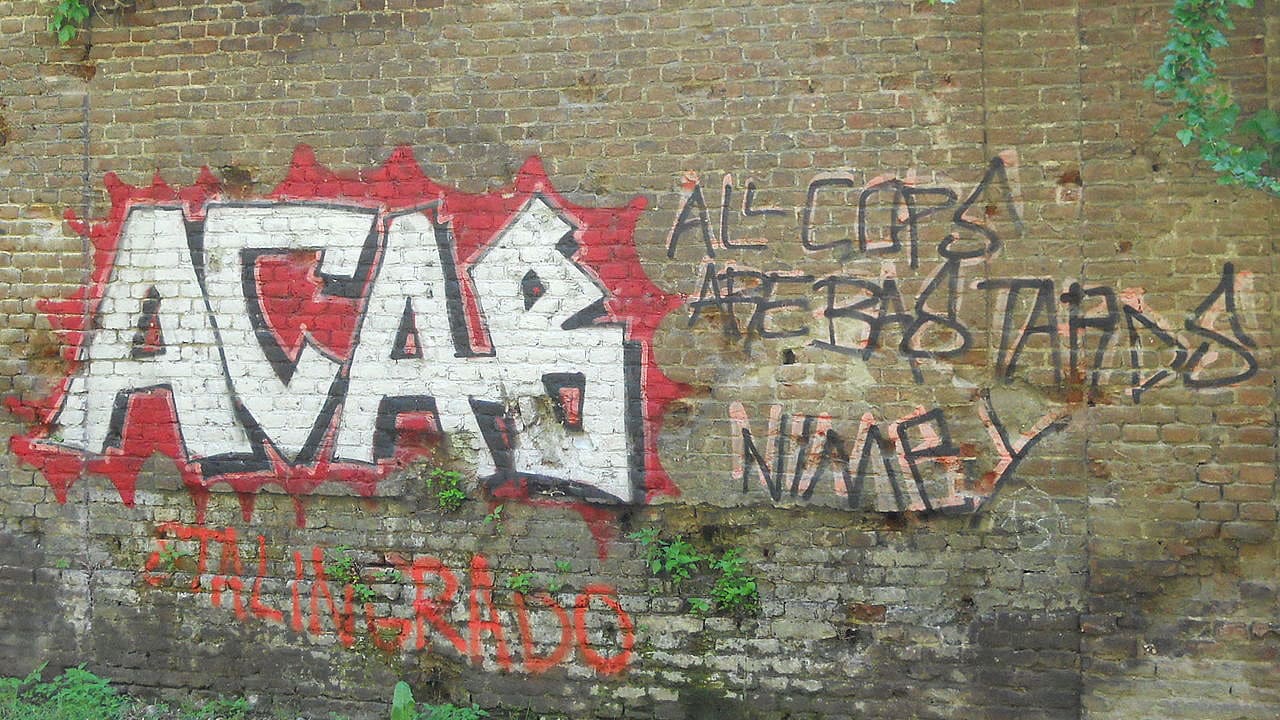Understanding ACAB: More Than Just a Phrase
Let me tell you about ACAB, which stands for "All Cops Are Bastards." It’s not just a catchy phrase but a powerful statement often seen in graffiti or even as tattoos. This slogan has become a symbol for those who oppose police authority and question the role of law enforcement in society. It’s something that resonates with people who feel disillusioned by the system, and it’s been around for a lot longer than you might think.
Breaking Down the Numbers: 1312
Sometimes, instead of seeing the letters ACAB, you might come across the numbers 1312. These digits represent the positions of the letters in the English alphabet—A being the first, C the third, A again the first, and B the second. It’s like a code, a way to express dissent without spelling it out directly. This numerical representation has gained traction, especially in places where openly criticizing the police might lead to repercussions.
Where Did ACAB Begin?
Now, here’s the thing about ACAB—it didn’t just pop up overnight. The exact origins are a bit murky, but most people agree it started in England sometime in the early 1900s. Imagine prisoners back in the day, locked up in the British penal system, taking their frustration and turning it into art. They’d write "ACAB" on walls or even tattoo it onto their skin as a form of protest. It’s fascinating how something so simple can carry so much weight and history.
Read also:Discover The Ultimate Fun With Skee Ball Machines
The Evolution of ACAB: From Prison Walls to Public Protests
While we may not know the exact moment ACAB was born, its rise to prominence can be traced back to the 1970s. Think about it—a British film from 1972 used the phrase prominently, casting a negative light on the police. This was a time when society was starting to question authority more openly, and ACAB became a rallying cry for those who felt wronged by the system. It wasn’t just spoken—it was written, tattooed, and shared, becoming a visual representation of dissent.
Why ACAB Resonates Today
In today’s world, ACAB has found new life. You’ll see it plastered across Twitter bios or scrawled on statues like Winston Churchill’s in London. It’s become a symbol of rebellion, embodying the struggles and frustrations of a generation. There’s a poetic irony in its roots, originating from the very place that helped shape modern policing. Even the word "cops," derived from "to take or seize," hints at the complex relationship between law enforcement and the public.
Variations on a Theme
Like any good slogan, ACAB has its variations. Some people say "All Cops Are Bad," while others go with "All Cops Are Bullshit." These slight changes reflect different perspectives and intensities of feeling. But at its core, ACAB is about challenging the status quo and questioning the role of police in our lives. It’s not about hating individuals—it’s about critiquing the institution as a whole.
ACAB in Context: History and Meaning
When we talk about ACAB, we’re not just discussing a phrase. We’re diving into a history of systemic issues, particularly in the United States. The principles behind ACAB are deeply rooted in the fight against police brutality and injustice. It’s a conversation that’s been going on for decades, and it’s one that needs to continue. If you’re interested in learning more, I highly recommend checking out the "Behind the Police" podcast. It’s a deep dive into the history of policing in America, and it’s eye-opening.
Modern-Day Usage and Impact
Fast forward to today, and ACAB is everywhere. Whether it’s protestors marching with signs or artists painting it on walls, the message is clear: people are tired of the status quo. It’s not just about the police—it’s about the systems that support them. Some might joke about "Assigned Cop at Birth," but the reality is much darker. ACAB reminds us that change is necessary, and it gives voice to those who have been silenced for too long.
Final Thoughts
As we look at ACAB, it’s important to remember its history and the emotions behind it. It’s not just a phrase—it’s a movement, a call to action. Whether you agree with it or not, there’s no denying its power. So, the next time you see ACAB written somewhere, take a moment to think about what it represents. It’s more than just four letters—it’s a reflection of the world we live in and the changes we need to make.
Read also:Exploring The Digital Age And Celebrity Privacy


